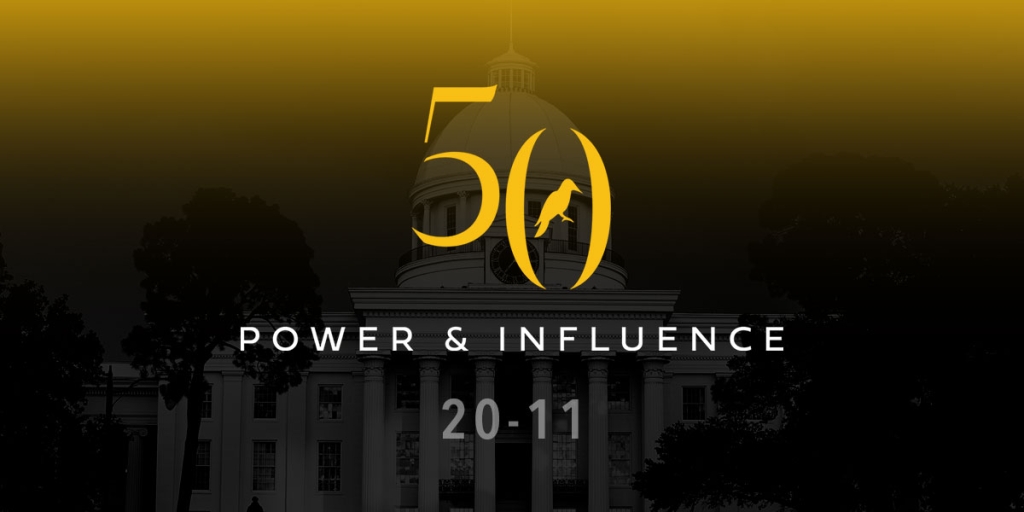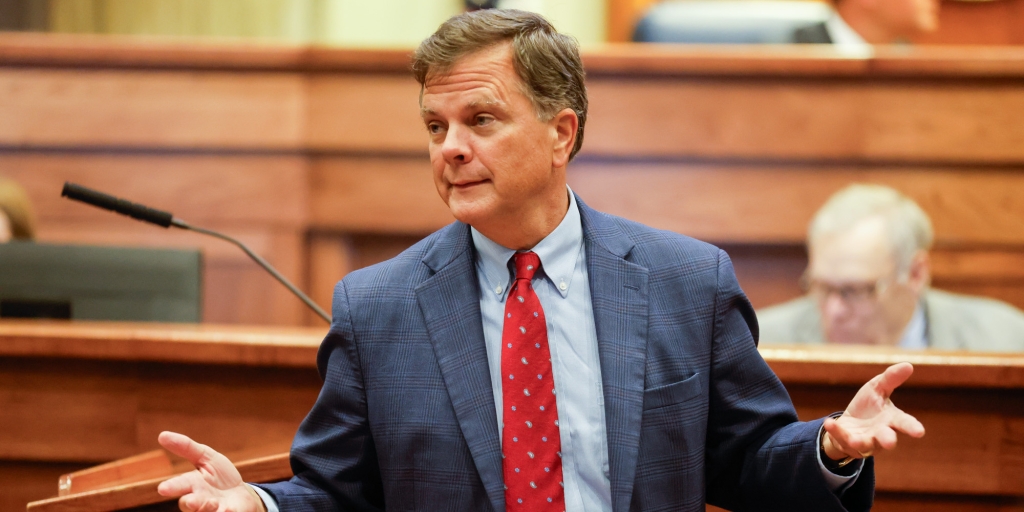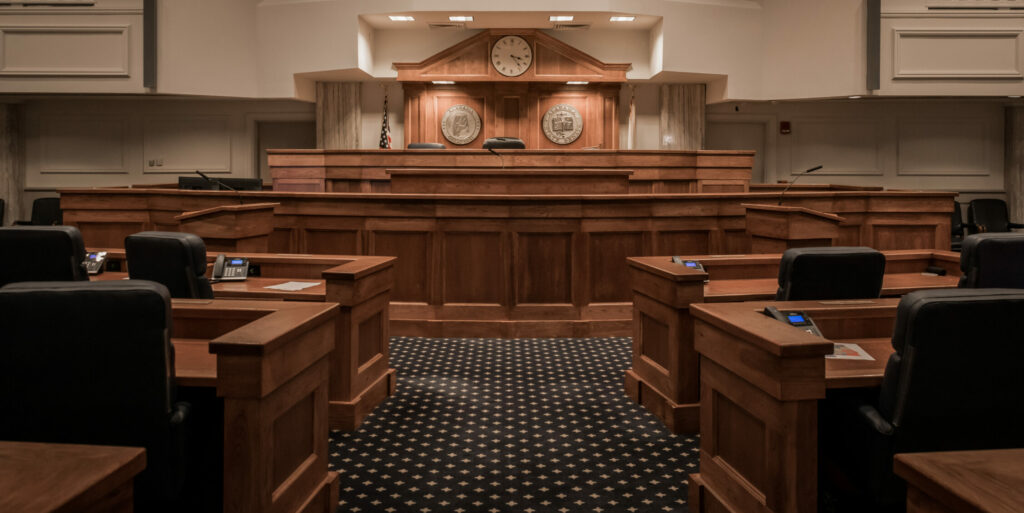Alabama Power Company in recent days was the focus of a joint webinar organized by the Edison Electric Institute and the National League of Cities (NLC), as the kick-off to NLC’s Emerging Tech Webinar Series.
The webinar featured a remote panel discussion moderated by John Smola, director of Business Transformation and Administration for Alabama Power. Panelists included Ben Moncrief, managing director in Alabama for C Spire; Senate Majority Leader Clay Scofield (R-Guntersville); Senate Minority Leader Bobby Singleton (D-Greensboro); and Aliceville Mayor Terrence Windham.
The event focused on Alabama Power — through its work forging broad, bold partnerships — as a national “success story in broadband deployment.”
“COVID highlights the great need for broadband options and accessibility for individuals to lead healthy and productive lives,” the webinar preview stated. “As children remain in distance learning and many jobs across the country are fully remote, access to quality broadband continues to be of paramount importance to cities of all sizes. Alabama Power, in concert with local and state government and telecommunications companies, has developed innovative solutions and partnerships to expand access to high-speed internet in its service territory – providing a critical digital lifeline today and for the future.”
Of course, the premise of the webinar was the success of two major legislative efforts in recent years, as well as Alabama Power’s implementation of those enacted programs.
Scofield was the sponsor of the bill that originally created the Alabama Broadband Accessibility Fund in 2018; he sponsored a bill the following year that improved this state grant program, which requires private matching funds.
Then, there was HB 400 in 2019, which was supported by the Alabama Rural Broadband Coalition. This bill, which allows internet service providers to use utility providers’ existing fiber infrastructure for what is called “the middle mile,” has enabled an already fruitful collaboration between Alabama Power and C Spire, a telecommunications company based in Mississippi.
In January, for example, C Spire announced a historic $500 million investment in Alabama, going towards the critical expansion of fiber infrastructure in the Yellowhammer State. At that time, C Spire had recently connected its first Alabama customers in Jasper, and service was set to imminently begin in Trussville.
Across the board, the webinar opened with the NLC’s Lena Geraghty commenting that Alabama is taking up the “vital work” of “breaking down the digital divide.”
Smola, in his subsequent opening remarks, explained, “Our team really has the privilege to serve almost 1.5 million customers throughout Alabama. And each day we work to provide them the reliable service they expect while also identifying opportunities to grow and elevate our state and create even more opportunities for the citizens of Alabama. One of the innovative solutions we’ve identified over the past few years is to expand broadband access, and that’s what we’re here to talk about today.”
Once underway, the governmental panelists shared their personal perspectives covering the dire need for high-quality broadband access in their respective areas, as well as unique challenges to expansion that they face.
“It is a really exciting and challenging time to be in the broadband expansion business in Alabama,” noted C Spire’s Moncrief. “Alabama is in the worst position in terms of fiber access among residential premises in the Southeast. … The good news is there’s a great deal of leadership around that issue.”
One especially notable call-to-action that emerged from the discussion was the urgent need for building out fiber infrastructure in a big way across the Yellowhammer State.
Whether it be through federal or state programs, a steady and large-scale revenue stream is needed to truly connect all of Alabama. A recent study showed that it would take between $4 billion and $6 billion to provide broadband access to all Alabamians.
While the Alabama Broadband Accessibility Fund is a step in the right direction, the program was funded at about $25 million last year, so either several decades or significant new revenue streams will be needed to get the job done.
One aspect that Scofield stressed was keeping public-private partnerships driving expansion rather than having government try to do it all.
“The government does not need to be in the business; it needs to be with the professionals who know what they’re doing,” he underscored.
“Our problem moving forward definitely is funding,” Scofield affirmed. “And getting more funding to help encourage more companies to invest in these areas.”
Singleton in his remarks thanked Scofield for his leadership on the broadband expansion issue.
The minority leader expressed appreciation for his Republican counterpart supporting the Black Belt and similar areas through that important work.
Getting back to the funding aspect of the broadband expansion conversation, Singleton pointed to SB 214, currently pending Senate action, as a potential source of the type of revenue needed to really move the needle statewide. He also emphasized the importance of SB 215, which would establish the Digital Expansion Authority to help plan, oversee and manage public sector broadband expansion efforts in the state; this bill, entitled the Connect Alabama Act, would also create the Alabama University Research Alliance, among other important broadband-focused moves.
He outlined how broadband access is key to modern economic competitiveness and opportunity in rural areas, such as his Black Belt district.
“We want to be able to affect education, telemedicine, other parts of health care, and I think we’re moving in the right direction to do something great in this state,” Singleton said. “I think we have a good plan moving forward, it just needs to be executed.”
Singleton later added that certain areas that are not necessarily rural also have limited access to high-quality broadband internet services. He advised that it might be best to look at it as “served and underserved” as opposed to a non-rural vs. rural conversation.
“I think we should serve them equally,” he commented.
Scofield concurred to this point.
He further explained how affordability will also improve with increased availability.
Moncrief reiterated that C Spire chose Alabama in part due to the presence of willing and able partners across the public and private sectors, such as those on the webinar.
“I’m proud of what we’re building here in terms of the conversations we’re having, even conversations like this,” Singleton stated. “You know, five years ago we weren’t having these kind of conversations on broadband.”
The entire webinar can be listened to here.
Sean Ross is the editor of Yellowhammer News. You can follow him on Twitter @sean_yhn













